Six delegations from PAHO and the Guatemalan Ministry of Health toured the most affected areas of the country to assess the damage and health needs.
The indigenous community of Palop in Nebaj, Quiché, subsists by planting beans, potatoes and corn and by harvesting sugar cane. This fragile way of life has forced many families to migrate from their community in search of new economic opportunities. Poverty, chronic malnutrition and climate-related disasters are among the issues that already affect this community, which is now left even more vulnerable, following the passage of Tropical Storm Eta that severely hit Guatemala.
“When we saw that the hill was collapsing, I grabbed my son and we went in the rain to the nearest community. We walked towards the mountain for five hours until we reached the house of a neighbor who welcomed us. We thought we were going to die,” says Ingrid Lopez, who lives in the Palop community.
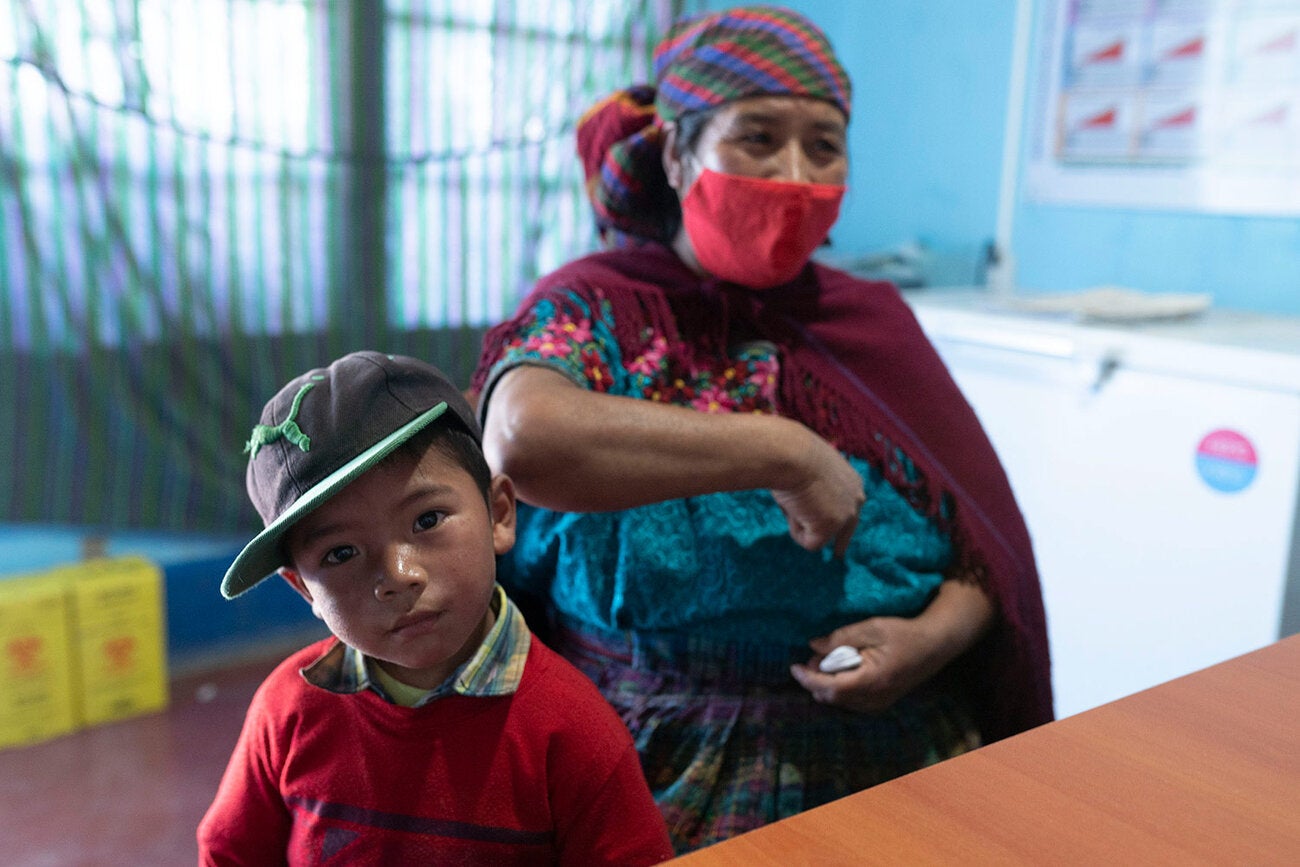
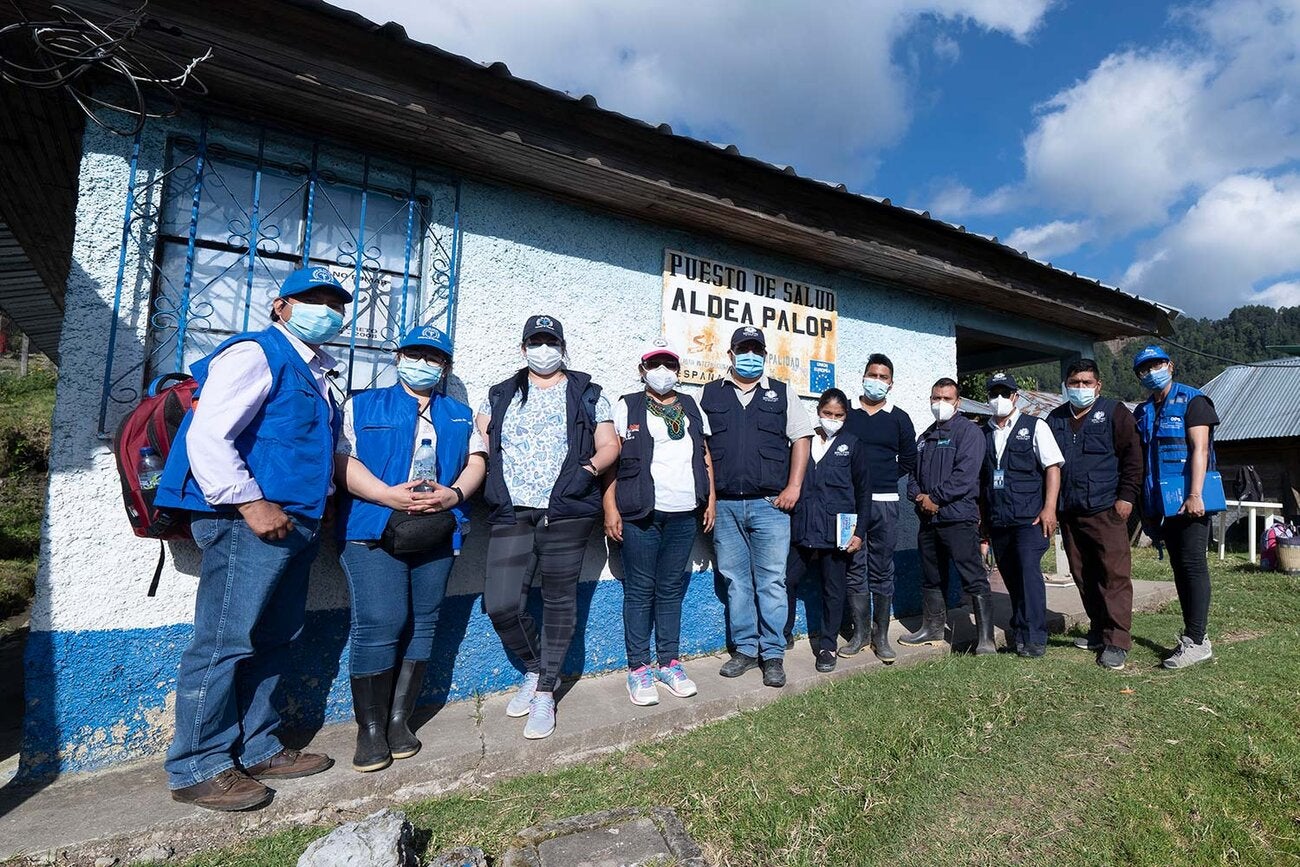
According to official data, 6 persons from this community lost their lives and 2 persons are missing. In addition, the bridge that connects Palop with the municipality was swept away by the flooding of the river, resulting in its partial isolation.
Based on the testimonies of the people of Palop, the greatest concern now is the upcoming rains that may affect the country “It was a Thursday, we heard a noise like a bomb, it was raining and we saw that the river level was rising, we just said 'we're going to die ´, ”remembers Dominga Cox, 60 years old. “I am afraid that it will rain again, and maybe that the land will slide again. Now with my husband we no longer sleep, there is only dreams of fear,” she adds.
A delegation of health professionals from the Ministry of Health accompanied by PAHO/WHO in Guatemala was able to reach the community to meet with the leaders and learn about the immediate needs of the affected people in Palop. This brigade was able to provide medical care, weight and height control to children under five years of age and psychosocial support.
Six delegations from the Ministry of Health accompanied by PAHO / WHO technical experts were deployed to the most affected departments of the country. A total of 41 people professionals visited Alta Verapaz, Quiché, Ixil, Zacapa, Izabal and Petén to assess damage and needs in shelters and health services, as well as monitor the COVID-19 situation. "We already saw an increase in COVID-19 cases well before the effects of Eta. The risks are now increasing for the country, which is why we have to do everything possible to mitigate transmission in shelters," explains Dr. Liz Parra, Advisor on Health Emergencies at PAHO / WHO in Guatemala.
As in Palop, the brigades visited communities and shelters to define immediate actions required for the continuity of essential health services such as water and sanitation, psychosocial support, nutrition, among others.
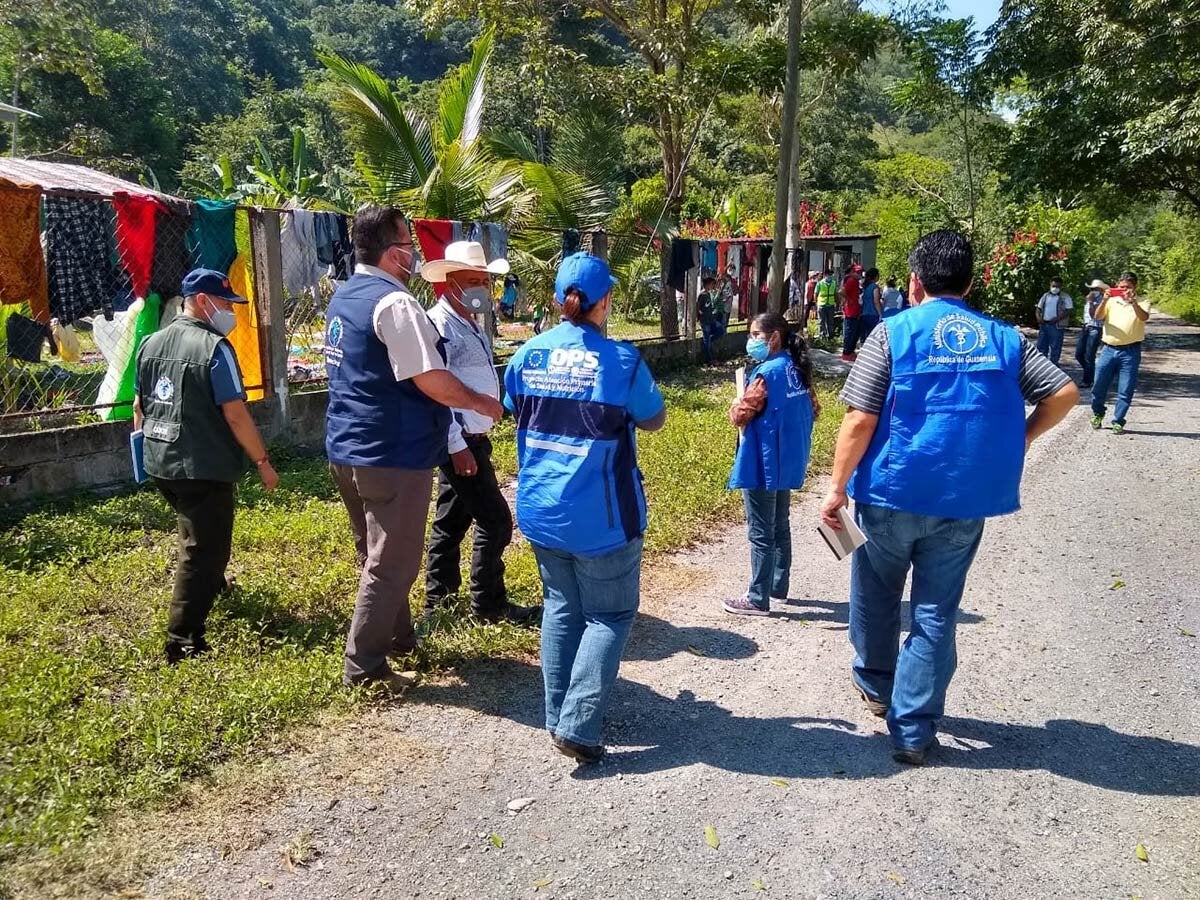
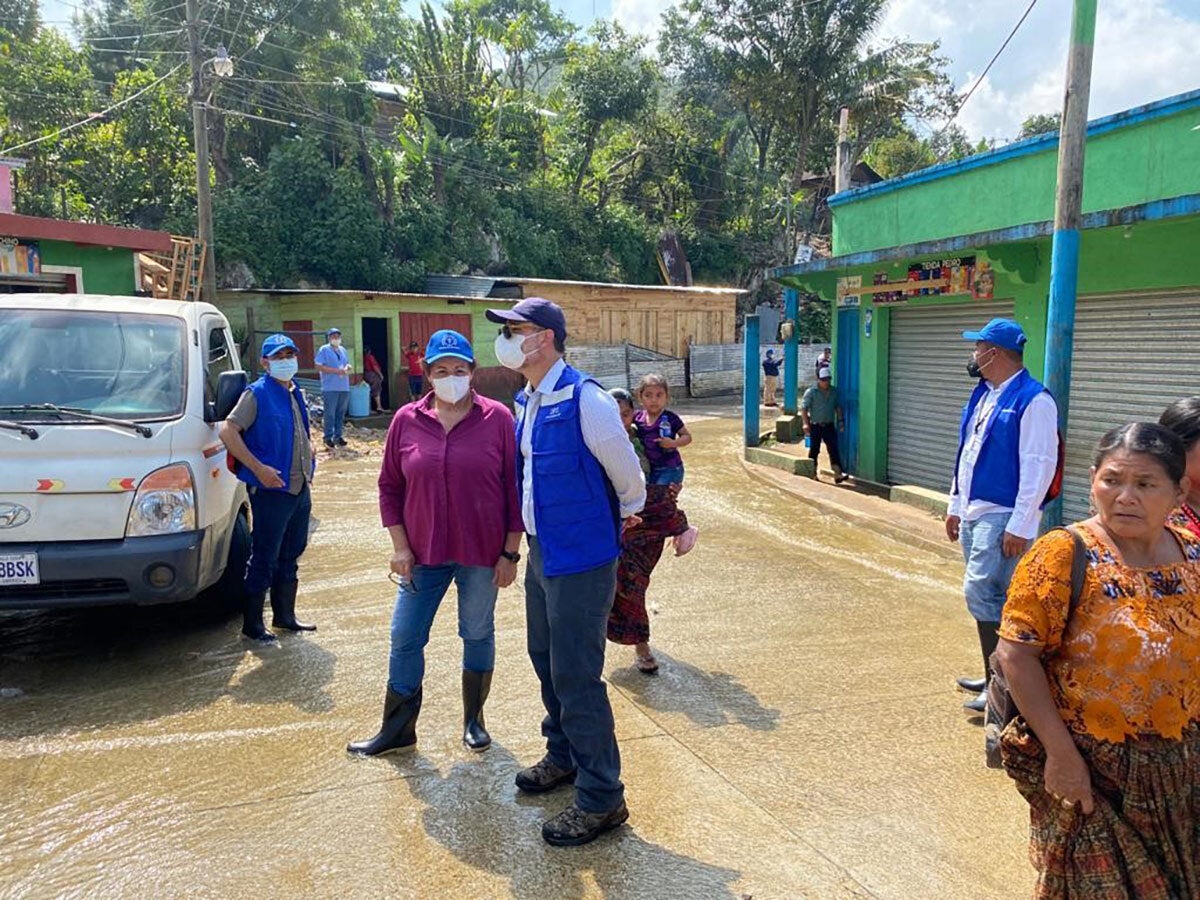
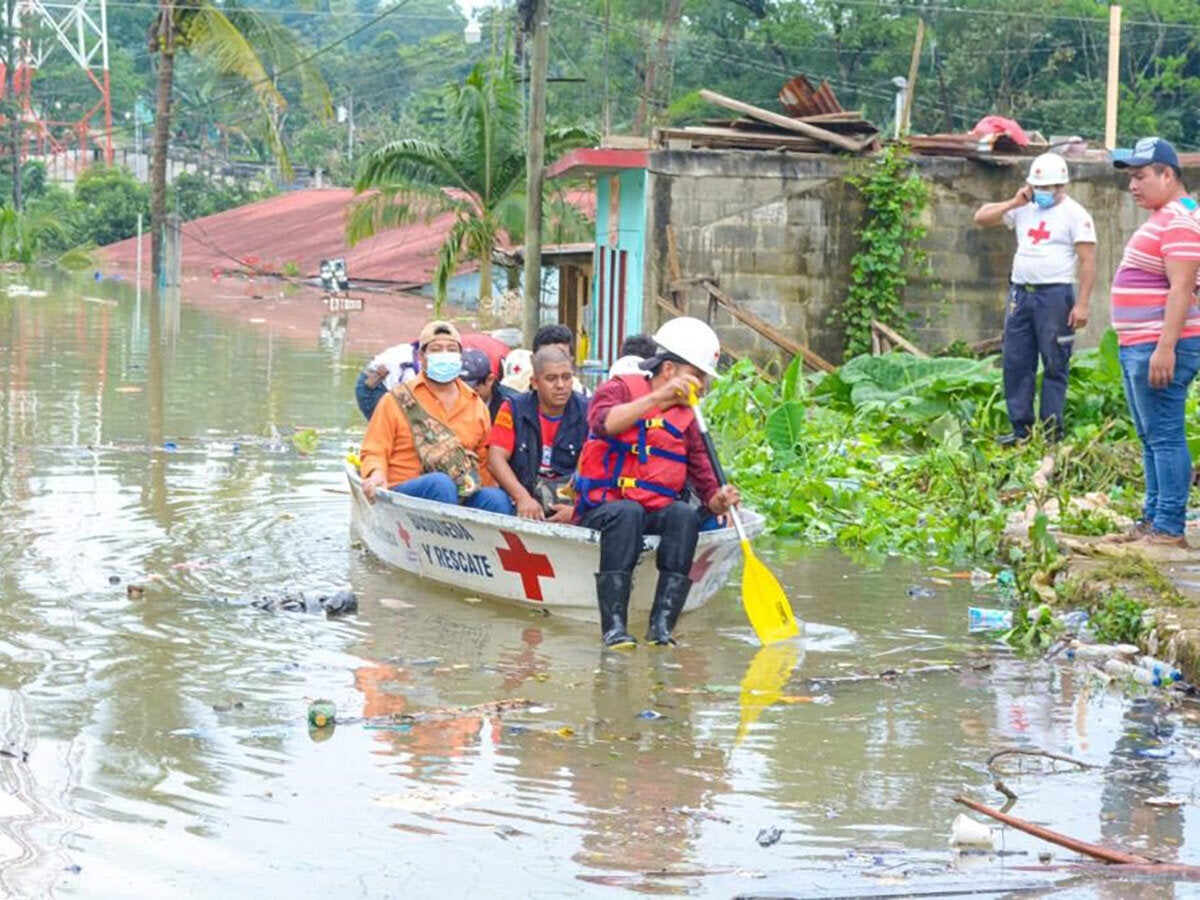
“We are contributing to the response to this emergency with our technical staff to support the teams of the Ministry of Health in their rapid assessment of the situation and health needs in the affected areas. This support is also contributing to the local coordination of the response by the Directorates of Health Areas. The affected communities have high rates of chronic malnutrition, and we are concerned that this situation will worsen the health status of children, pregnant women and adolescents in these areas, who were already in a situation of vulnerability before the emergency, ”indicates Dr. Oscar Barreneche, PAHO/WHO Representative in Guatemala.
Dr. Oscar Barreneche accompanied the Minister of Public Health and Social Assistance, Dra. Amelia Flores and the Vice Minister of Primary Health Care, Dr. Edwin Montúfar, in their visit to the department of Alta Verapaz, one of the most devastated by Eta, to ensure medical care for the affected people, assess the damage to the health services infrastructure and discuss the response to the emergency with local health personnel.
PAHO/WHO supported the installation of a temporary health post in the Campur community in San Pedro Carchá. The Organization also sent megaphones, clinical stabilization modules, medical kits for each module, and personal protective equipment to Izabal, Alta Verapaz and Quiché based on the needs identified by the brigades deployed to the affected areas.
"We are living a difficult time in which we must assist the victims of TS Eta, while ensuring that assistance is provided under conditions that ensure the control of COVID-19," explains Oscar Barreneche, PAHO/WHO Representative in Guatemala. “Added to this is the urgent need to restore access to safe water and sanitation for these communities. The impact that Eta had on the infrastructure of the health sector in some areas is worrisome, as is its impact on health personnel, many of whom are among the victims, ”he adds.
Fifteen additional people came to the house that provided shelter to Ingrid and her family as they were fleeing the landslides. Despite the fear and uncertainty that exists, Ingrid's baby does not stop smiling, offering hope that soon everything will return to normal.